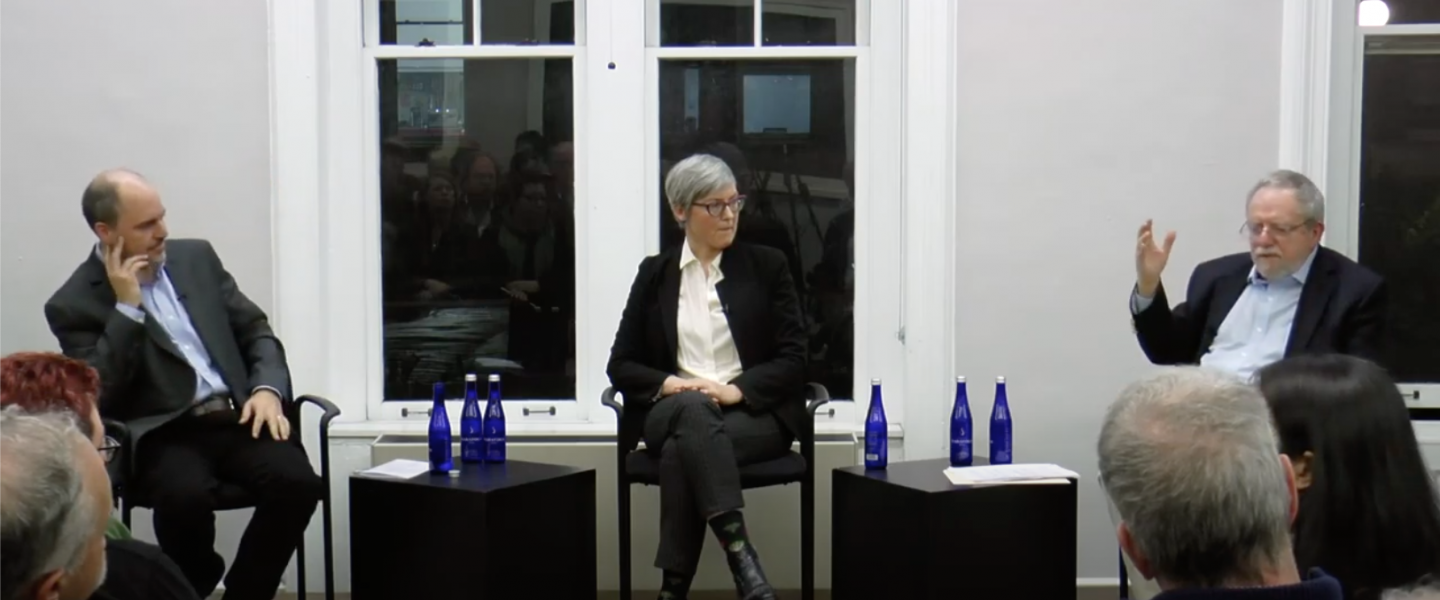
The Core: Change and Permanence in the 21st Century
David Denby CC'65 JRN'66, along with two esteemed professors, one now teaching Lit Hum (Nicholas Dames), the other CC (Julie Crawford) discusses the continued vitality of the Core for entering students and how it serves as inspiration for a long life of reflection and engagement for alumni.
Denby, a former film critic and current staff writer for The New Yorker, has been a student in the Core three times--as an 18-year-old, in his 40's, and now again in his 70's. In recent years, the College student body has become internationalized, many more women now teach in the Core, and the 80s critique of the Core (that it was a hegemonic discourse attuned to the needs of white males only) has been partly incorporated into the Core’s expanded and somewhat altered reading list. Has the Core changed? Or has it changed in order to remain essentially the same?
Quotes
“You throw yourself against these extraordinary older works of art that are very different from your expectations, from the art that you know and the life that you know, and some of it echoes back and some of it does not, and you have to stretch to take in what connection you have.”
- David Denby CC'65 JRN'66
“The Core is just a gateway drug to the humanities.”
- Julie Crawford
“It was necessary for me to present my own fraught relationship to either certain ideas or certain figures in the hopes that it would model unease that [students] could then feel safe expressing.”
- Nicholas Dames on teaching Lit Hum
About the Speakers:
David Denby was educated at Columbia College, Columbia School of Journalism and Stanford. He is the author of Great Books (1996), an acclaimed account of returning to college and reading the Western classics during the culture wars; American Sucker (2004), his wrenching memoir of getting caught up in the stock market at the time of the tech bubble and the breakup of his marriage; Snark (2009), a polemic against the spread of nasty low sarcasm as a journalistic style in the Internet age; Do the Movies Have a Future? (2012), a collection of his best movie criticism from The New Yorker; and Lit Up (2016), a prequel to Great Books, in which he embeds in tenth-grade English classes at three pubic schools to see if—and how—teenagers can be turned on to serious reading.
Julie Crawford is Mark Van Doren Professor of Humanities in the Department of English and Comparative Literature at Columbia University. She works on sixteenth- and seventeenth-century English literature and culture, and has written on Shakespeare, John Fletcher, Margaret Cavendish, the Sidneys, Anne Clifford, Margaret Hoby, and Mary Wroth, as well as on post-Reformation religious culture, the history of reading, and the history of sexuality. Her book, Marvelous Protestantism: Monstrous Births in Post-Reformation England, was published by Johns Hopkins University Press in 2005, and her most recent book, Mediatrix: Women, Politics, and Literary Production in Early Modern England, was published by Oxford UP in 2014.
Nicholas Dames is the Theodore Kahan Professor of Humanities in the Department of English and Comparative Literature at Columbia University, where he teaches nineteenth-century fiction, the history and theory of the novel, the history of reading, and the aesthetics of prose fiction from the eighteenth century to the present. His interests center on the long history of novelistic form in Britain and Western Europe. He is the author of Amnesiac Selves: Nostalgia, Forgetting, and British Fiction, 1810-1870 (2001), and The Physiology of the Novel: Reading, Neural Science, and the Form of Victorian Fiction (2007).
Read more
Denby shares more of his experience in Lit Hum, Revisited.

Please log in to comment.